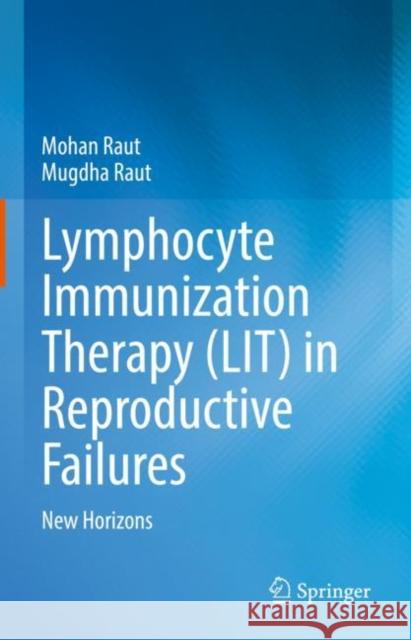Lymphocyte Immunization Therapy (Lit) in Reproductive Failures: New Horizons » książka
topmenu
Lymphocyte Immunization Therapy (Lit) in Reproductive Failures: New Horizons
ISBN-13: 9789811929595 / Angielski / Twarda / 2022
Lymphocyte Immunization Therapy (Lit) in Reproductive Failures: New Horizons
ISBN-13: 9789811929595 / Angielski / Twarda / 2022
cena promocyjna 266,98
(netto: 254,27 VAT: 5%)
533,97
Rabat: -50%
Najniższa cena z 30 dni: 385,52
(netto: 254,27 VAT: 5%)
Rabat: -50%
Najniższa cena z 30 dni: 385,52
Termin realizacji zamówienia:
22 dni roboczych
22 dni roboczych
Darmowa dostawa!
Zobacz inne książki w promocji: Wyprzedaż publikacji z zakresu nauk stosowanych
Recurrent Miscarriages (RM) & Implantation Failure (IF) have remained an enigma to clinicians and researchers. Even after ruling out all possible causative factors, 50-60% cases still remain “Unexplained’. A majority of these so called “Unexplained” cases are now found to have immunological basis.
This book is going into the Immunological aspects of these clinical dilemmas, demystifying the role of Immunology and Immunotherapy in RM and IF. The authors have been working in the field of Reproductive Immunology and Immunotherapy for the last 25 years and they have come out with this book combining the international studies with their own experience. The purpose of writing this book is to provide a comprehensive treatise about Immunotherapy, so that it can become an acceptable modality of treatment in cases where it is needed and is effective.
The book discusses the basics in Reproductive Immunology. The immunological changes occurring during pregnancy, the role of Cell mediated Immunity (T cells), Humoral Immunity including cytokines is explained. The normal immunological mechanisms protecting the embryo are highlighted and how these mechanisms are disturbed leading to RM and IF, is also explained.
The first and the most discussed method of Immunotherapy is Lymphocyte Immunization Therapy (LIT). The book has given a complete overview of LIT, describing how it created euphoria when it was first introduced, how it gradually went into disrepute and how it is now making a comeback. As the authors have personal experience of LIT, the book gives a detailed and complete information about this active form of immunotherapy.
The book has a special section on case studies where the authors have given some clinical case reports (including some of their own), who were treated for immunological factor in RM/IF and were treated with Immunotherapy. These cases can be a useful guide to the readers.
The book will be useful not only for undergraduate and postgraduate students but also for clinicians in their practice and for researchers for review of developments in the field.











